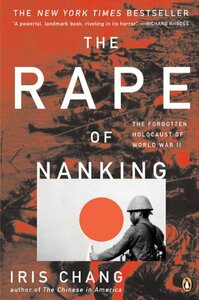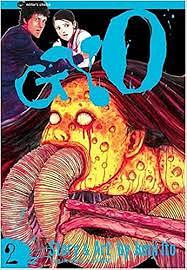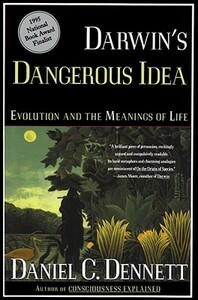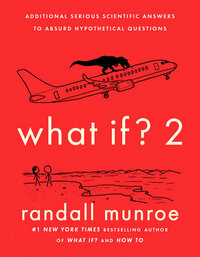Take a photo of a barcode or cover
amralsayed0's Reviews (146)
Iris Chang ended up committing suicide in 2004 at the age of 36 while promoting one of her later books. She had a mental breakdown that lasted 3 days ending with Chang putting a gun in her mouth. Before she died she left 3 suicide notes.
I think this is very telling about the stories of atrocities she had to collect and study to make this book.
I promise to get up and get out of the house every morning. I will stop by to visit my parents then go for a long walk. I will follow the doctor's orders for medications. I promise not to hurt myself. I promise not to visit Web sites that talk about suicide.
When you believe you have a future, you think in terms of generations and years. When you do not, you live not just by the day — but by the minute. It is far better that you remember me as I was—in my heyday as a best-selling author—than the wild-eyed wreck who returned from Louisville. ... Each breath is becoming difficult for me to take—the anxiety can be compared to drowning in an open sea. I know that my actions will transfer some of this pain to others, indeed those who love me the most. Please forgive me.
There are aspects of my experience in Louisville that I will never understand. Deep down I suspect that you may have more answers about this than I do. I can never shake my belief that I was being recruited, and later persecuted, by forces more powerful than I could have imagined. Whether it was the CIA or some other organization I will never know. As long as I am alive, these forces will never stop hounding me.
Days before I left for Louisville I had a deep foreboding about my safety. I sensed suddenly threats to my own life: an eerie feeling that I was being followed in the streets, the white van parked outside my house, damaged mail arriving at my P.O. Box. I believe my detention at Norton Hospital was the government's attempt to discredit me.
I think this is very telling about the stories of atrocities she had to collect and study to make this book.
Definitely won't be the last book by Siddhartha Mukherjee that I read.
I came to know about this manga when a random user on Reddit linked it and I was not expecting a horror manga so I was doubly surprised. I will give it 4 stars for being great at what it is but I will never ever ever read it again
This book needs to be reviewed in the context of the time it was published, namely after Horkheimer escaped Germany while it was under Hitler's rule. It's true that most of the book rings more true than ever today but parts of it now feel dated.
Horkheimer begins by making a distinction between subjective reason, the reasoning you use to reach a certain goal, and objective reason, the reasoning you use to question the virtue of the goal in and of itself. He then makes the argument that Western Philosophy has seen a shift towards the later. While I agree that this shift is happening and is all too clear today, I don't agree with Horkheimer's criticism of science that it's becoming too subjective and it only concerns itself with how to do something rather than if this something should be done at all. I believe that the institution of science should remain only concerned with subjective reason (the way Horkheimer defined it) as this seems to be the best way to acquire truth about the given that truth is our goal.
In Chapter 2, Horkheimer criticizes Positivism, Neo-Thomism and Pragmatism in great length. I agree with his criticisms of both Neo-Thomism and Pragmatism but when criticizing Positivism I found the argument ... unfulfilling. He argues that science, which positivists wholeheartedly embrace, can be used to do serve evil means and more over, in this capitalist world, science is only done to serve a producing entity or corporation and rarely for its own merit of finding out the truth. He then continues by criticizing the scientific method itself and pointing out it's limitations for finding the truth. What I find unfulfilling is that this view of science might have been spurred by the use of the first atomic bomb few years prior to the writing of the book. The picture might have been bleak then but it's certainly much better now though the positivists' philosophy still suffers from the same problems Horkheimer mentioned up until now albeit to a lesser degree.
As for Chapter 3, the image Horkheimer paint of the relationship between man and nature is both fascinating and bleak. He talks about the domination of man over nature and how nature is view as just a tool, the repression it breeds in man and the memetic nature of man that he uses to deal with this struggle.
Chapter 4 describes the effect of social injustice, culture, economics, mass culture and oppression on the individual. How all of this forces conformity until it becomes the norm and the individual instead of challenging that begins to form an interest in maintaining it. All of which are thoughts that we can identify with today.
It's a good, albeit philosophically dense and a bit hard to go through, book and you will find compelling critiques that are still relevant to our world today.
Horkheimer begins by making a distinction between subjective reason, the reasoning you use to reach a certain goal, and objective reason, the reasoning you use to question the virtue of the goal in and of itself. He then makes the argument that Western Philosophy has seen a shift towards the later. While I agree that this shift is happening and is all too clear today, I don't agree with Horkheimer's criticism of science that it's becoming too subjective and it only concerns itself with how to do something rather than if this something should be done at all. I believe that the institution of science should remain only concerned with subjective reason (the way Horkheimer defined it) as this seems to be the best way to acquire truth about the given that truth is our goal.
In Chapter 2, Horkheimer criticizes Positivism, Neo-Thomism and Pragmatism in great length. I agree with his criticisms of both Neo-Thomism and Pragmatism but when criticizing Positivism I found the argument ... unfulfilling. He argues that science, which positivists wholeheartedly embrace, can be used to do serve evil means and more over, in this capitalist world, science is only done to serve a producing entity or corporation and rarely for its own merit of finding out the truth. He then continues by criticizing the scientific method itself and pointing out it's limitations for finding the truth. What I find unfulfilling is that this view of science might have been spurred by the use of the first atomic bomb few years prior to the writing of the book. The picture might have been bleak then but it's certainly much better now though the positivists' philosophy still suffers from the same problems Horkheimer mentioned up until now albeit to a lesser degree.
As for Chapter 3, the image Horkheimer paint of the relationship between man and nature is both fascinating and bleak. He talks about the domination of man over nature and how nature is view as just a tool, the repression it breeds in man and the memetic nature of man that he uses to deal with this struggle.
Intellectually, modem man is less hypocritical than his forefathers of the nineteenth century who glossed over the materialistic practices of society by pious phrases about idealism. Today no one is taken in by this kind of hypocrisy. But this is not because the contradiction between high-sounding phrases and reality has been abolished. The contradiction has only become institutionalized. Hypocrisy has turned cynical; it does not even expect to be believed. The same voice that preaches about the higher things of life, such as art, friendship, or religion, exhorts the hearer to select a given brand of soap. Pamphlets on how to improve one's speech, how to understand music, how to be saved, are written in the same style as those extolling the advantages of laxatives. Indeed, one expert copywriter may have written any one of them. In the highly developed division of labor, expression has become an instrument used by technicians in the service of industry. A would-be author can go to a school and learn the many combinations that can be contrived from a list of set plots. These schemes have been coordinated to a certain degree with the requirements of other agencies of mass culture, particularly those of the film industry. A novel is written with its film possibilities in mind, a symphony or poem is composed with an eye to its propaganda value. Once it was the endeavor of art, literature, and philosophy to express the meaning of things and of life, to be the voice of all that is dumb, to endow nature with an organ for making known her sufferings, or, we might say, to call reality by its rightful name. Today nature’s tongue is taken away. Once it was thought that each utterance, word, cry, or gesture had an intrinsic meaning; today it is merely an occurrence.
Chapter 4 describes the effect of social injustice, culture, economics, mass culture and oppression on the individual. How all of this forces conformity until it becomes the norm and the individual instead of challenging that begins to form an interest in maintaining it. All of which are thoughts that we can identify with today.
It's a good, albeit philosophically dense and a bit hard to go through, book and you will find compelling critiques that are still relevant to our world today.
This book is brilliant!
I really like that Dennett early on set up analogies like "skyhook" and "crane" and concepts like "Library of Babel" and "Library of Mendel" and after explaining them pretty well leans on that effort for the rest of the book to explain other ideas.
It was particularly interesting to me, given my computer science background, the parallels Dennett drew between optimization algorithms and Darwin's evolution. It was fascinating seeing concepts I'm very familiar with like Conway's Game of Life and search trees and optimization algorithms being used to describe seemingly unrelated theories in biology.
But the later chapters were ... shorter than I expected. I wanted Dennett to go into more depth about morality and its relation to evolution. He critiques other philosophers' moral theories and those who subscribe to social Darwinism relentlessly but offers no moral theory of his own. I suspect that Dennett's view on morality prevents him from making grand statements about it and prefers to stay on the defensive when it comes to morality.
On somewhat of a tangent, I learned the Dennett describes himself as an autodidact and after discovering this word, I completely identify with it! It shows in this book that he studied a wide range of fields from philosophy to biology to computer science and it's amazing to see the view of such a person on evolution.
I really like that Dennett early on set up analogies like "skyhook" and "crane" and concepts like "Library of Babel" and "Library of Mendel" and after explaining them pretty well leans on that effort for the rest of the book to explain other ideas.
It was particularly interesting to me, given my computer science background, the parallels Dennett drew between optimization algorithms and Darwin's evolution. It was fascinating seeing concepts I'm very familiar with like Conway's Game of Life and search trees and optimization algorithms being used to describe seemingly unrelated theories in biology.
But the later chapters were ... shorter than I expected. I wanted Dennett to go into more depth about morality and its relation to evolution. He critiques other philosophers' moral theories and those who subscribe to social Darwinism relentlessly but offers no moral theory of his own. I suspect that Dennett's view on morality prevents him from making grand statements about it and prefers to stay on the defensive when it comes to morality.
On somewhat of a tangent, I learned the Dennett describes himself as an autodidact and after discovering this word, I completely identify with it! It shows in this book that he studied a wide range of fields from philosophy to biology to computer science and it's amazing to see the view of such a person on evolution.
This is exactly the kind of scientific humour I like. I have always loved Randall Munroe's subtle humour whether it's in the xkcd comics or the books he writes. It's vaguely reminiscent of Douglas Adams' sci-fi comedy but without the narrative. There is no story here. Just Randall answering absurd questions.
If you're even a little bit interested in science, you will like this book.
Also, if you don't read the footnotes ... you're a monster!.
If you're even a little bit interested in science, you will like this book.
Also, if you don't read the footnotes ... you're a monster!.
Q: What would happen if one tried to funnel Niagara Falls through a straw?
A: One would get in trouble with the International Niagara Committee, the International Niagara Board of Control, the International Joint Commission, the International Niagara Board Working Committee, and probably the Great Lakes–St. Lawrence River Adaptive Management Committee. Also, the Earth would be destroyed.










